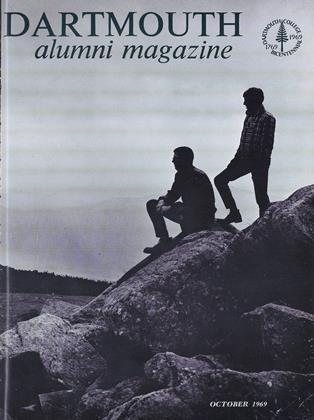After three years of testing a limited pass-fail option in undergraduate courses, the Faculty of Arts and Sciences has approved a recommendation of the Committee on Educational Planning to retain the pass-fail device but to limit its use to courses outside of both the major and distributive requirements. During the test period only courses taken to satisfy major requirements were excluded from the pass-fail option, which gives students the choice of substituting it for the regular grading system of A to E.
The pass-fail option was initiated at Dartmouth in 1966 as a test effort to "encourage students to broaden their knowledge" and enrich their educational experience by making it possible for them to explore courses and areas of study in which they might be interested but about which they might be apprehensive because of unfamiliarity with the subject. However, it was found that only 3% of the students using the non-recording option did so to explore courses they would not otherwise have taken.
The Faculty voted that, by making necessary arrangements at enrollment, a student could change a non-recording option to a recorded mark in any case where his performance would benefit his academic average. It was also voted to retain the previous maximum limit of two pass-fail options during the academic year and one per term.
 View Full Issue
View Full Issue
More From This Issue
-
 Feature
FeatureThird Century Fund Launches General Campaign Among Alumni
October 1969 -
 Feature
FeatureThe Transcending Great Issues
October 1969 -
 Feature
FeatureA Scientific Centennial for Dartmouth
October 1969 By ALLEN L. KING -
 Feature
FeatureWhitewater Racing Gains New Status
October 1969 By JAY EVANS '49 -
 Feature
FeatureBicentennial Draws Unusual Gifts
October 1969 -
 Article
ArticleWith the Big Green Teams
October 1969







